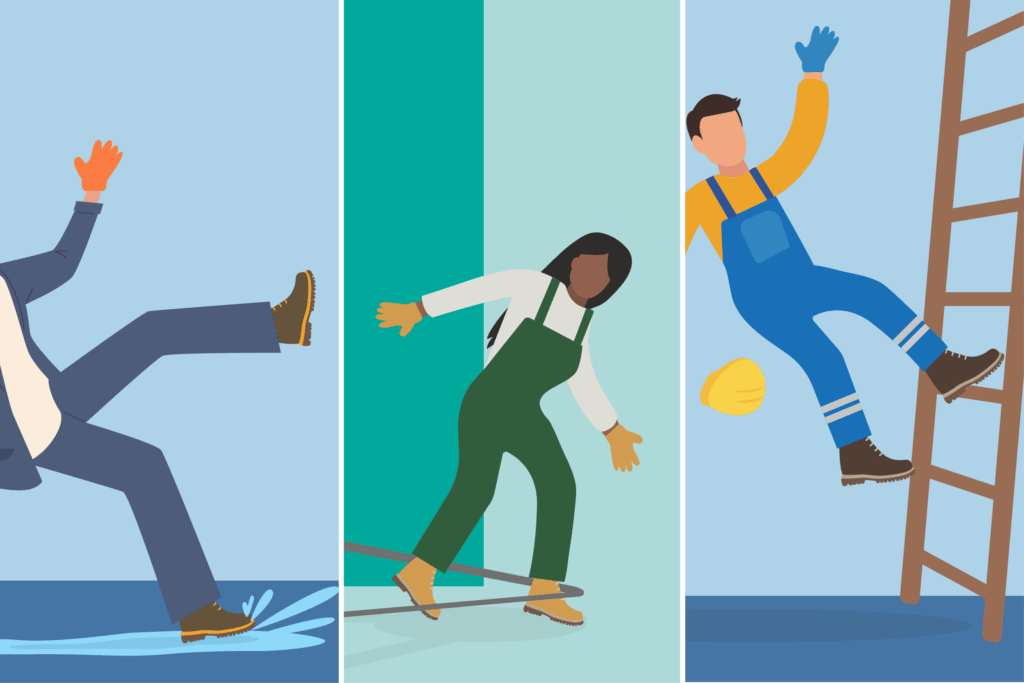Navigating the world of personal injury claims can be confusing. You might wonder if your accident is a slip, trip, or fall, and how it affects your case. Understanding these differences is crucial. Here’s why. A slip often happens when surfaces are slippery. A trip usually involves obstacles causing you to stumble. A fall might result after a slip or trip, leading to injuries. Each scenario has specific causes and legal implications. Identifying yours is essential for pursuing the right claim. If you’re in Atlanta and facing this situation, seeking guidance from a personal injury attorney Atlanta can be invaluable. They help you determine the nature of your accident and build a strong case. Remember, clarity is key. Knowing the difference not only supports your claim but can affect the compensation you receive. Stay informed and protect your rights with the right knowledge and legal support.
Understanding the Terms
When it comes to personal injuries, knowing the cause of your accident can make a significant difference. Let’s break down the meanings:
- Slip: This usually occurs when the floor or ground is slick. Common causes include water, oil, or ice. You may find these conditions in grocery stores, parking lots, or on sidewalks.
- Trip: This happens when an object blocks your path. It might be a misplaced step, uneven flooring, or small obstacles. Trips are common in cluttered spaces or areas under construction.
- Fall: A fall can result from either a slip or trip. It involves losing your balance and hitting the ground or another surface. Falls can lead to serious injuries, especially for older adults.
The Importance of Proper Identification
Identifying your accident as a slip, trip, or fall is critical in a legal context. Each type of accident may have different responsible parties and liabilities. For instance, a slip might point to negligent cleaning practices. Meanwhile, a trip might highlight poor maintenance or lack of signage. Understanding these distinctions helps your attorney argue your case effectively.
Legal Implications
The type of accident can affect the legal process and compensation. Here’s how each might play out legally:
| Type | Potential Legal Implications |
| Slip | Could involve claims against building owners for not maintaining safe conditions. |
| Trip | May focus on property maintenance or construction standards. |
| Fall | Could lead to broader claims, especially if related to other hazards. |
Steps to Take After an Accident
In the aftermath of an accident, consider these steps:
- Document everything. Take photos of the scene and your injuries.
- Report the incident. Notify the property owner or manager.
- Seek medical attention. This ensures your health and creates a medical record.
- Contact a legal professional. They can guide you on the best course of action.
These steps not only protect your health but also strengthen your potential case.
Prevention Tips
Prevention is always better than cure. Here are some safety tips:
- Wear proper footwear. Shoes with good grip can reduce slipping risks.
- Keep pathways clear. Remove obstacles that could cause trips.
- Use proper signage. Alert others of potential hazards like wet floors.
By taking these precautions, you can minimize risks and promote safety.
Where to Find More Information
For further guidance, consider visiting these resources:
- Occupational Safety and Health Administration for workplace safety tips.
- Centers for Disease Control and Prevention for fall prevention strategies.
Education and awareness are key to understanding and preventing these accidents.
Conclusion
Slips, trips, and falls are common but can have serious consequences. Knowing the difference is important. It impacts your legal rights and the compensation you may receive. Seek help from professionals in Atlanta who can guide you through the process. Stay informed, take precautions, and prioritize safety in every environment.
Welcome to our blog! My name is Yuvraj Kore, and I am a blogger who has been exploring the world of blogging since 2017. It all started back in 2014 when I attended a digital marketing program at college and learned about the intriguing world of blogging.


